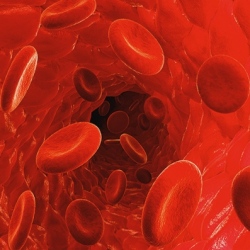
Doctors frequently tell us to eat our greens, but soon they could be prescribing broccoli. A powder that contains concentrated extract from the vegetable could prove indispensable to people with type 2 diabetes. The extract reduced blood sugar levels by up to 10 per cent in people with the disease.
Type 2 diabetes usually develops around middle age, often in people who are overweight. Their body stops responding to insulin, which controls the level of glucose in the blood. Abnormal insulin regulation causes a rise in blood sugar levels, which can raise people’s chances of heart attacks, blindness and kidney problems.
People with the condition are often prescribed metformin, which helps to lower blood glucose. However, as many as 15 per cent cannot take this therapy because of kidney damage risks.
“More research is needed to see if this repurposed drug can be used to treat Type 2 diabetes, as it was only tested in a small number of people and only helped a subset of those who are taking it,” says Elizabeth Robertson, of the charity Diabetes UK. “For now, we recommend that people continue with the treatment prescribed by their healthcare team.”
A chemical called sulforaphane, found in broccoli sprouts, has previously demonstrated an ability to reduce glucose levels in diabetic rats. Anders Rosengren of the University of Gothenburg in Sweden, and his colleagues wondered whether the same might be true for humans. To test the theory, his team gave 97 people with type 2 diabetes a concentrated dose of sulforaphane every day for three months, or a placebo. All but three people in the trial continued taking metformin. Those who didn’t take metformin were able to control their condition relatively well without it.
The concentration of sulforaphane given was around 100 times that found naturally in broccoli. “It was the same as eating around five kilograms of broccoli daily,” says Rosengren.
On average, those who received the broccoli extract saw their blood glucose reduce by 10 per cent more than those on the placebo. The extract was most effective in obese participants with “dysregulated” diabetes, whose baseline glucose levels were higher to start with.
“We’re very excited about the effects we’ve seen and are eager to bring the extract to patients,” says Rosengren. “We saw a reduction of glucose of about 10 per cent, which is sufficient to reduce complications in the eyes, kidneys and blood,” he says.
Further investigations showed that while both metformin and sulphoraphane cut blood glucose, they do it in different ways. Metformin makes cells more sensitive to insulin, so they sponge more surplus glucose out of the bloodstream. Sulphoraphane reduces glucose by suppressing liver enzymes that otherwise stimulate the production of glucose.
For this reason, Rosengren thinks the broccoli extract is complementary to metformin, not competitive. But he points out that many people with diabetes can’t take metformin because of kidney complications, so the broccoli extract could be an ideal substitute in these cases.
In collaboration with the Swedish Farmers’ Association, Rosengren and his colleagues are applying to regulatory authorities to seek approval for the powder, which could take as little as two years.
Rosengren also plans to explore potential benefits of the extract in people who are pre-diabetic, and so not yet taking metformin.
